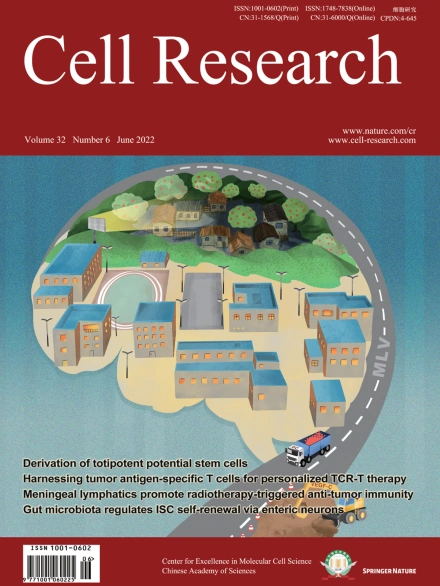
Advanced Search
Submit Manuscript
Advanced Search
Submit Manuscript
Volume 32, No 6, Jun 2022
ISSN: 1001-0602
EISSN: 1748-7838 2018
impact factor 17.848*
(Clarivate Analytics, 2019)
Volume 32 Issue 6, June 2022: 530-542
Defined tumor antigen-specific T cells potentiate personalized TCR-T cell therapy and prediction of immunotherapy response
Jingjing He1,2,† , Xinxin Xiong1,2,† , Han Yang1,† , Dandan Li1,† , Xuefei Liu1,† , Shuo Li1 , Shuangye Liao1 , Siyu Chen3 , Xizhi Wen1 , Kuai Yu1 , Lingyi Fu1 , Xingjun Dong1 , Kaiyu Zhu1 , Xiaojun Xia1 , Tiebang Kang1 , Chaochao Bian4 , Xiang Li4 , Haiping Liu4 , Peirong Ding1,†,* , Xiaoshi Zhang1,†,* , Zhenjiang Liu1,†,* , Wende Li3,†,* , Zhixiang Zuo1,† , Penghui Zhou1,†
1State Key Laboratory of Oncology in Southern China, Collaborative Innovation Center for Cancer Medicine, Sun Yat-sen University Cancer Center, Guangzhou, China.Personalized immunotherapy targeting tumor-specific antigens (TSAs) could generate efficient and safe antitumor immune response without damaging normal tissues. Although neoantigen vaccines have shown therapeutic effect in clinic trials, precise prediction of neoantigens from tumor mutations is still challenging. The host antitumor immune response selects and activates T cells recognizing tumor antigens. Hence, T cells engineered with T-cell receptors (TCRs) from these naturally occurring tumor antigen-specific T (Tas) cells in a patient will target personal TSAs in his/her tumor. To establish such a personalized TCR-T cell therapy, we comprehensively characterized T cells in tumor and its adjacent tissues by single-cell mRNA sequencing (scRNA-seq), TCR sequencing (TCR-seq) and in vitro neoantigen stimulation. Compared to bystander T cells circulating among tissues, Tas cells were characterized by tumor enrichment, tumor-specific clonal expansion and neoantigen specificity. We found that CXCL13 is a unique marker for both CD4+ and CD8+ Tas cells. Importantly, TCR-T cells expressing TCRs from Tas cells showed significant therapeutic effects on autologous patient-derived xenograft (PDX) tumors. Intratumoral Tas cell levels measured by CXCL13 expression precisely predicted the response to immune checkpoint blockade, indicating a critical role of Tas cells in the antitumor immunity. We further identified CD200 and ENTPD1 as surface markers for CD4+ and CD8+ Tas cells respectively, which enabled the isolation of Tas cells from tumor by Fluorescence Activating Cell Sorter (FACS) sorting. Overall, our results suggest that TCR-T cells engineered with Tas TCRs are a promising agent for personalized immunotherapy, and intratumoral Tas cell levels determine the response to immunotherapy.
https://doi.org/10.1038/s41422-022-00627-9